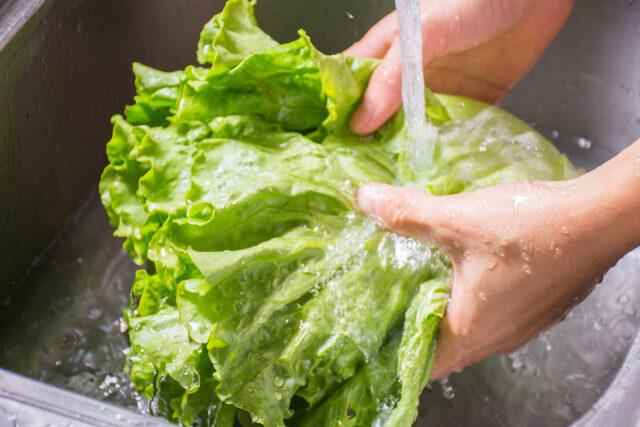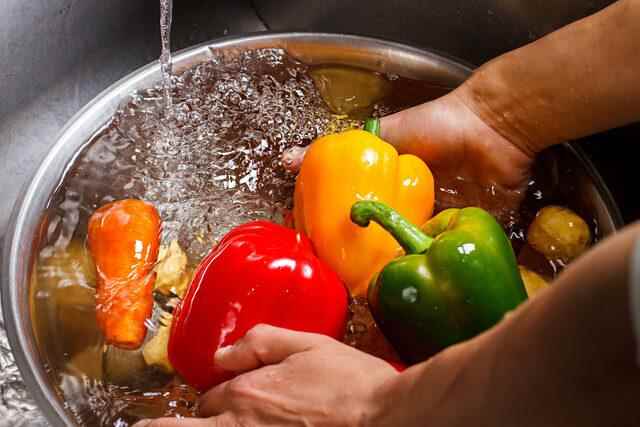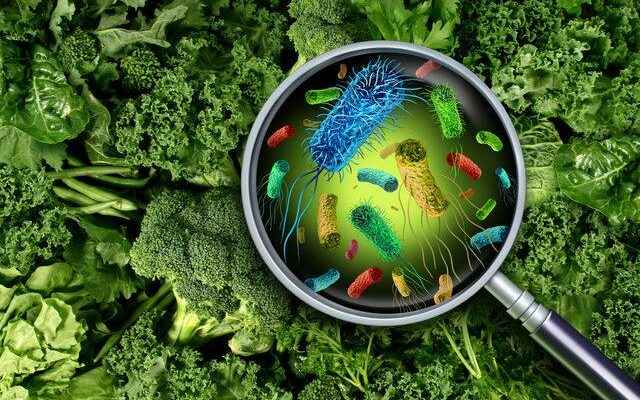Although most of the food poisonings caused by the consumption of foods containing microbes go away on their own within a few days, they can reach life-threatening levels in risk groups such as children, elderly people, pregnant women and those with chronic diseases.
Acıbadem Fulya Hospital Internal Medicine Specialist Dr. Ozan Kocakaya, pointing out that the most important rule you should pay attention to when food poisoning occurs is not to dehydrate your body, and said, “It is possible to prevent the blood flow to our organs from being interrupted by maintaining the fluid balance. From thinking healthy to normal urine output, everything depends on our fluid balance and staying hydrated. Therefore, make a habit of consuming plenty of fluids during the day without waiting for thirst. In addition, in order not to strain the capacity of the sick and edematous stomach, consume small and small portions, do not eat fatty foods that will delay gastric emptying. The third rule you should pay attention to is to rest.” says.

HOW DO MICROBES CONTAIN FOOD?
Microbes that cause food poisoning; It can be a virus (norovirus or rotavirus), bacteria (salmonella, E.coli) or parasite (like small worms). Dr. Ozan Kocakaya explains how microbes contaminate food:
People who are sick can transmit microbes to food through their hands while preparing and serving food.
If prepared foods are stored in inappropriate conditions, microbes can still be transmitted.
Microbes can live on food. If the food is not washed well or the bacteria on it are not cooked until they die, it can cause disease.

Microbes can pass from one food to another. Therefore, if the cutting board or knives used in the preparation of the food are not cleaned properly, the microbe in the food can infect others.
PATIENTS CAN GIVE DIFFERENT SYMPTOMS
Internal Medicine Specialist Dr. Noting that the symptoms of food poisoning vary according to the microbe that makes the person sick, Ozan Kocakaya said, “The symptoms can be seen in a few hours after the consumption of food, and the development of the disease can take days.” says. Dr. Ozan Kocakaya lists the most common symptoms as follows:
- Nausea
- Vomiting
- Stomach ache
- Diarrhea (watery or bloody)
- Fire
Rarely, neurological findings such as visual impairment, drowsiness, numbness and tingling in the hands and arms may also occur.

DON’T WASTE TIME
- Immediately if you are in the at-risk group for food poisoning, if you are not:
- If your fever exceeds 38.5 degrees
- If you had to go to the toilet more than 6 times in 24 hours
- If you see blood in the toilet
- If you have severe abdominal pain

If you can’t eat or drink even though you’ve lost a lot of fluids, if you develop symptoms of thirst such as fatigue, dry mouth, muscle cramps, and dark urine, it is vital to seek medical advice immediately.
TREATMENT IS DONE FOR SYMPTOMS
The diagnosis of food poisoning is made by questioning the patient’s symptoms and the foods he consumed about a week ago. The disease is usually short-lived and the patient recovers within days. For this reason, it is not possible to find out exactly which bacterium causes the disease, and it is not considered necessary. Your blood pressure, pulse, temperature, weight are measured, and in some cases, blood and stool tests are performed. If there is a lack of fluid in the body, it is supplemented and treatment is planned for the symptoms. Food poisoning may rarely require antibiotics.

10 CRITICAL RULES AGAINST FOOD POISONING!
Internal Medicine Specialist Dr. Ozan Kocakaya lists the precautions you should take against food poisoning as follows:
- Contact with dirty hands can easily lead to the transmission of microbes to food. So make it a habit to wash your hands frequently with soap for at least 20 seconds after using the toilet, changing a diaper, or coming into contact with animals.

- Do not consume raw milk, do not eat ice cream and soft cheese containing raw milk.
- If you are pregnant, pay special attention to dairy products, consume enough aged dairy products or fresh dairy products labeled ‘made from pasteurized milk’.
- Wash fruits and vegetables under running clean water, not soaking them in water.
- Make sure the temperature setting of the refrigerator is 4 degrees Celsius or below, and the freezer is set to at least -18 degrees.
- Make sure the meat is well cooked to eliminate germs.
- Consume cooked food as soon as possible. Do not leave for more than 2 hours at room temperature, immediately place in the refrigerator.
- Keep uncooked meats away from other foods when preparing or storing them.
- Clean cutting boards, knives and tongs that come into contact with uncooked meat immediately after contact. Do not allow the water flowing from these to pollute the environment.
- Do not consume the waiting salads.
